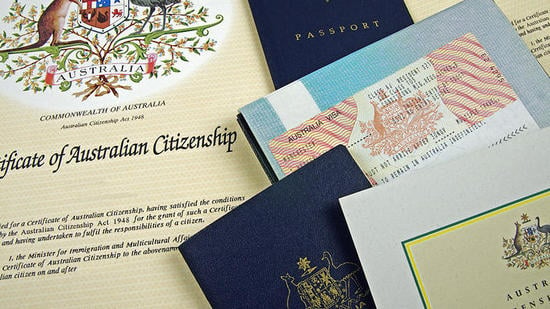Navigation
- Partner Visa Australia Introduction
- Partner Visa Sponsor Relationship
- Partner Visa Australia Checklist
- Partner Visa Australia Application Process
- Partner Visa Australia Cost
- Partner Visa Australia Processing Time
- Partner Visa Australia Frequently Asked Questions
- Partner Visa refusal
- Partner Visa changes and requirements
New policies during the COVID-19:COVID-19 Visa Concessions for Partner and Child visas
1. Partner Visa Australia Introduction
A Partner visa lets the de facto partner or spouse of an Australian citizen, Australian permanent resident or eligible New Zealand citizen live in Australia temporarily.
According to information released by the Department about their migration program in 2020-2021:
- Family Stream – is predominately made up of Partner visas, enabling Australians to reunite with family members from overseas, and provide them with pathways to citizenship (72,300 places in 2020-21, 93.5 per cent of the program).
The Partner visa subclass you apply for will be different depending on whether you are insider or outside Australia or intending to marry:
| Subclass 820 & 801 be in Australia when you apply for this visa and when the Department decides your temporary visa application. Family who applies with you must also be in Australia | Subclass 309 & 100 Usually, be outside Australia when you apply and when the visa is granted | Subclass 300 Prospective Marriage visa intend to marry your prospective spouse before the visa period ends and apply for a Partner visa |
Despite appearing straightforward on the surface, applying for a Partner visa is a stringent process, requiring caution all the way through. A small mistake can be very costly.
2. Partner Visa Australia Sponsor
You require a sponsor for your Partner visa application, who is usually your partner.
In most cases, you must be the spouse or de facto partner of an:
- Australian citizen
- Australian permanent resident or
- eligible New Zealand citizen
Your relationship can be with someone of the same or different sex.
Marriage
To be a married applicant:
- you and your spouse must both be committed to a shared life together to the exclusion of all others
- your relationship with your spouse must be genuine and continuing
- you must live with your spouse or do not live apart on a permanent basis
- your marriage must be valid under Australian law
De facto partners
To be a de facto partner, you must be in a de facto relationship.
- you and your partner are in a de facto relationship if all these apply:
- you are not married to each other
- you are committed to a shared life to the exclusion of all others
- your relationship is genuine and continuing
- you live together or do not live separately and apart on a permanent basis
Usually your de facto relationship must have existed for at least 12 months immediately before you apply for the visa. Time spent dating or in an online relationship might not count as being in a de facto relationship.
The 12-month requirement will not apply if you can show us compelling and compassionate circumstances exist.
It also will not apply if you:
- you have registered your relationship with an Australian authority such as a registry of births, deaths and marriages relationship.
3. Partner Visa Australia Checklist and Requirements
The key criteria which you need to prove is that you and your Partner satisfy the following:
- you have a mutual commitment with your spouse of de facto partner to the exclusion of all others
- your relationship is genuine and continuing
- you either live together or don’t live permanently apart
If you are married, you will need to provide your marriage certificate or other evidence that your marriage is valid in Australia. If you are a de facto partner, provide proof of your de facto relationship.
The Department requires you to provide a statement about:
- how, when and where you first met
- how the relationship developed
- when you moved in together, got engaged or married
- what you do together
- time you spent apart
- significant events in the relationship
- your plans for the future
Finances
Show how you and your partner share financial matters. You could provide:
- joint mortgage or lease documents
- joint loan documents for major assets like homes, cars or major appliances
- joint bank account statements
- household bills in both names
Your household
Show how you and your partner share domestic matters. You could provide:
- a statement about how you share housework
- household bills in both names
- mail or emails addressed to you both
- documents that show joint responsibility for children
- documents that prove your living arrangements
Social matters
Show evidence that others know about your relationship, such as
- joint invitations or evidence you go out together
- proof you have friends in common
- proof you have told government, public or commercial bodies about your relationship
- proof you do joint sporting, cultural or social activities together
- proof you travel together
Commitment
Show how you are committed to a long-term relationship with each other. You could provide:
- proof you have knowledge of each other’s background, familysituation or other personal details. You could tell us this at an interview
- proof you have combined your personal matters
- the terms of your wills
- proof you stay in touch when apart
You will also need to provide:
- Your identity documents
- Other relationships: If you have previously been married, widowed, divorced or permanently separated, provide divorce documents, death certificates, separation documents or statutory declarations
- Character documents: police checks and complete and provide Form 80 Personal particulars for assessment including character assessment (554KB PDF)
- Documents for all dependents
Detailed information is available under ‘gather your documents’ on the Department’s website:
4. Partner Visa Australia Application Process
Steps in applying for a Partner visa:
- Apply for both the 820/801 and 309/100 visas
- If successful, you will be granted your Provisional Partner visa
- When it has been more than two years since your original application was lodged, additional documents will be required to assess you for the Permanent Partner visa application. You will be able to stay until your permanent visa is granted.
- When your 801 or 100 Partner visa is granted, you will be a Permanent Resident
5. Partner Visa Australia Cost
Partner and Prospective Marriage visas requires significant fees to lodge:
- From AUD8,850 is the base fee(Update date:2023.07)
There is also a fee for each family member who applies for the visa with you, unless they hold a Dependent Child visa (subclass 445). There is no fee for subclass 445 visa holders.
This does not take into account fees for police and health checks.
6. Partner Visa Australia Processing Time
As of 2023.07, the estimated processing times are:
820 Provisional Partner Visa Processing Time
- 25% of applications: 3 Months
- 50% of applications: 6 Months
- 75% of applications: 16 Months
- 90% of applications: 34 Months
801 Partner Visa (Permanent)
- 25% of applications: 6 Months
- 50% of applications: 13 Months
- 75% of applications: 16 Months
- 90% of applications: 26 Months
309 Provisional Partner Visa Processing Time
- 25% of applications: 6 Months
- 50% of applications: 10 Months
- 75% of applications: 15 Months
- 90% of applications: 29 Months
100 Partner (Migrant) Visa
- 25% of applications: 12 Months
- 50% of applications: 17 Months
- 75% of applications: 20 Months
- 90% of applications: 29 Months
7. Partner Visa Australia Frequently Asked Questions
What if my partner visa is refused?
You will be informed of reasons for the refusal and of your appeal rights to the Administrative Appeals Tribunal.
What happens after I am granted my Provisional visa?
While you are on your Provisional visa, you can:
- travel to and from Australia as many times as you want
- attend up to 510 hours of free English language classes provided by the Adult Migrant English Program
Keep documents that you will need to provide when you are assessed for the Permanent visa:
You will need to show that, since you were granted your temporary Partner visa, you and your sponsor have continued to:
- be married or de facto partners
- have a genuine and continuing relationship
- live together or not live separately and apart on a permanent basis, and
- be committed to a shared life excluding other partners
You also need to tell the Department if your circumstances change:
- changes to your contact details or passport
- changes to your marital or de facto status
- the birth of a child
- if your relationship ends


